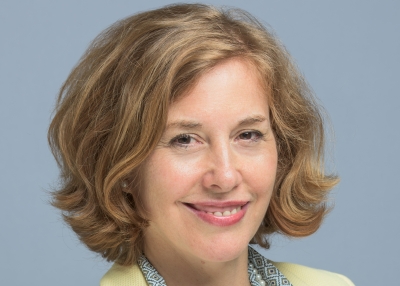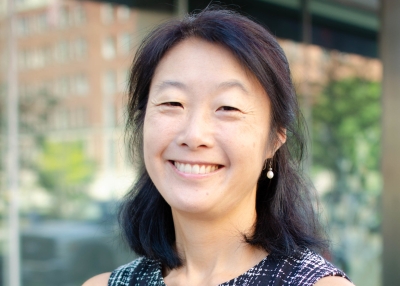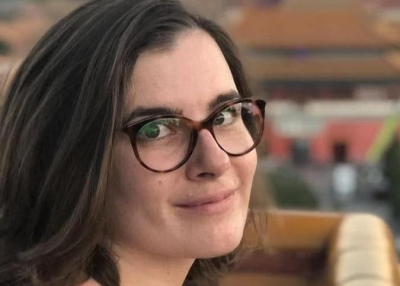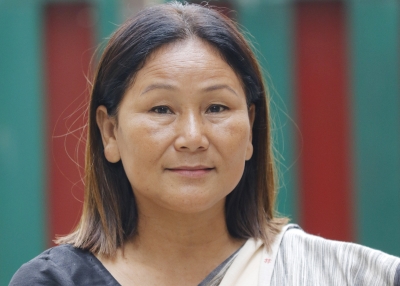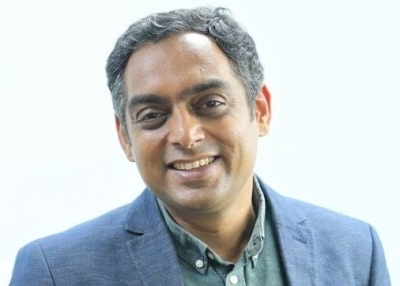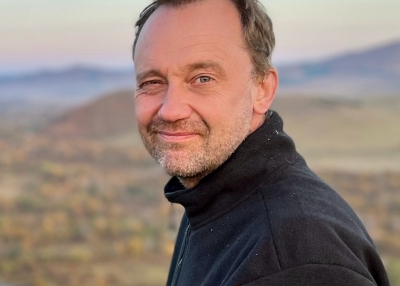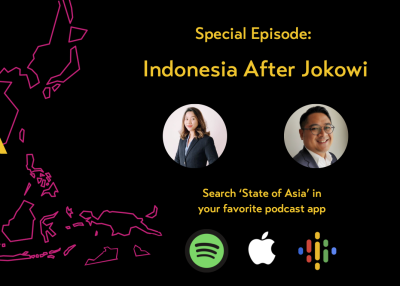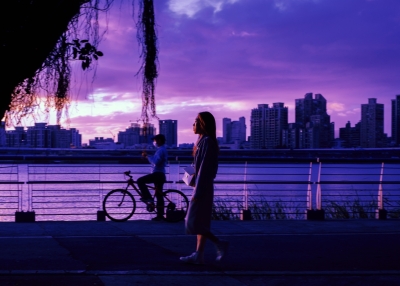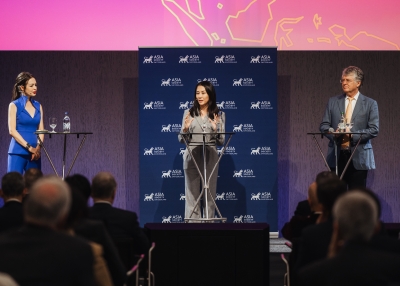State of Asia with Indira Ranamagar
Nepal’s Deputy Speaker on the challenges facing the Himalayan nation
GUEST ON THIS EPISODE
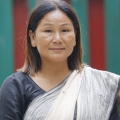
Indira Ranamagar is Deputy Speaker of the House of Representatives of Nepal since January 2023. She started her career as a primary science and maths teacher in village schools in the southeast of Nepal, and became a social worker in prisons in 1990. For well over 30 years now, she has been a prolific human rights and social worker. In 2000, she founded the NGO Prisoner’s Assistance Nepal, which looks after prisoners' welfare and works to give children whose parents are imprisoned an education and a roof over their heads.
In 2022, she was elected to Nepal’s House of Representatives on behalf of a brand-new political party, taking her social work from the streets to parliament.
In 2007, Indira was named an Asia 21 Young Leader by the global network of Asia Society, while in 2009 her NGO PA Nepal received the Asia Society Asia 21 Public Service Award. In 2017, she was the first Nepali to feature on the BBC’s list of the 100 most influential women in the world.
STATE OF ASIA podcast
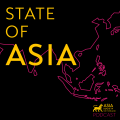
Season 6, Episode 3 – published April 30, 2024
Host/Producer: Remko Tanis, Programs and Editorial Manager, Asia Society Switzerland
Find previous and future episodes here, on Spotify, Apple Podcasts, Google Podcasts, or search for 'State of Asia' in any other podcast app. We're also on YouTube.
Transcript
00:00:03 Remko Tanis
From Asia Society Switzerland, this is State of Asia. I'm your host Remko Tanis.
00:00:10 Remko Tanis
Today we're talking Nepal with none other than Indira Ranamagar, Deputy Speaker of the House of Representatives of the Himalayan country.
Indira started her career as a primary science and math teacher in village schools in the southeast of Nepal. For well over 30 years now, though, she's been a prolific human rights and social worker. In 2000 she founded
00:00:30 Remko Tanis
Prisoners’ assistance Nepal or PA Nepal, an NGO which works to give children whose parents are in prisons an education and a roof over their heads.
00:00:39 Remko Tanis
In 2022, she took her social work from the streets to Parliament, being elected to Nepal's House of Representatives on behalf of a brand-new political party.
00:00:49 Remko Tanis
Since January 2023, she serves as the Deputy Speaker of the House and as such has a seat on the 6- person strong Constitutional Council of Nepal as well. Back in 2007, Indira was named an Asia 21 Young Leader by the global network of Asia Society and two years after that her NGO PA Nepal received the
00:01:09 Remko Tanis
Asia Society Asia 21 Public Service award. In 2017, Indira was the first Nepali to feature on the BBC's list of the 100 most influential women in the world.
00:01:18 Remko Tanis
So, it's a great pleasure to welcome you, honorable Deputy Speaker Indira Ranamagar to State of Asia.
00:01:24 Indira Ranamagar
Namaskar.
00:01:25 Remko Tanis
I wanted to start by asking you about the recent protests in Kathmandu demanding the restoration of the monarchy and the Hindu state. Nepal became a secular republic in 2008 after parliament abolished the monarchy as part of a peace deal that ended a decade-long
00:01:40 Remko Tanis
civil war. The protesters demand restoration of the monarchy. Many Nepalese, they say, have grown frustrated with the republic saying it failed to bring political stability and blaming the struggling economy on the current system. What can you tell us about what's going on and what is the impact of these protests in Nepal at the moment?
00:01:59 Indira Ranamagar
As I understood, you know democracy, everybody has a right to speak, isn't it? Everyone is a different people, has a different philosophy, you know.
00:02:08 Indira Ranamagar
Principle, you know, doesn't matter, you know. So, one time we are fed up with the monarchy. Yeah, sometime. You know, when the day people, what they dream about it after monarchy. Maybe there is a, you know, lot of freedom maybe good life. It might be that they are not getting and so sometime you know what happened. You know when the outburst.
00:02:28 Indira Ranamagar
And first station brings the
00:02:29 Indira Ranamagar
revolution. I don't think it's exactly like a revolution coming. It's a demonstration a little bit. We have a right to speak, before we didn't have a right to speak. Now we have a democracy to speak out, isn't it? But I don't think, you know, of course we have a lot of problems. But you know when it's something changing and you can see the blast, you know, before a lot of things.
00:02:50 Indira Ranamagar
It's hiding you.
00:02:51 Indira Ranamagar
now so people could not speak and people could
00:02:53 Indira Ranamagar
express and then this. This way the people all over the world can see that because we have a right to speak, a right to do demonstration.
00:03:00 Remko Tanis
You were elected to the House of Representatives in the last elections in November 2022. Two months later, in January 2023, you were elected as the Deputy Speaker of the House. You were elected with a political party that was formed only just before that election in November 2022.
00:03:17 Indira Ranamagar
Yeah, very new party. And then all the people are very professional. Some are journalists, some are doctors.
00:03:22 Indira Ranamagar
And some are social workers. Some are business people.
00:03:25 Remko Tanis
During that last election campaign, your party as well, you used the hashtag ‘No, not again’ protesting what you saw as the old elites.
00:03:32 Indira Ranamagar
But I'm gone now. I have no longer join the party. So, I was in party RSP, but now as a deputy speaker, my place is a very honorable place.
00:03:42 Indira Ranamagar
So, I have to be a neutral for everyone.
00:03:45 Remko Tanis
But during that campaign, though, which used the hashtag ‘no, not again’ back in November 2022, and which saw over 80% of Members of parliament elected in that election were new members of Parliament. So that's a huge input of fresh views that came into Nepal's parliament. Now that we're 18 months, almost two years later, what has that led to?
00:04:03 Indira Ranamagar
I think it's changing when you see something changing. Sometimes you know it looks like a blast, you know, but I think this is also positive. People are now able to speak their frustration. Unstable government is making us difficulties. That's a challenge for the development.
00:04:19 Indira Ranamagar
But we have a lot of possibilities for the development of Nepal. The first thing we have our natural resources is which is we have in second in the world. So we are very lucky to have, but only we need to manage, you know, organize this proper way.
00:04:35 Indira Ranamagar
But I see
00:04:36 Indira Ranamagar
still, there is a positive part, you know.
00:04:39 Indira Ranamagar
Our government, they try to plan you know how to develop Nepal, how to bring back to our young people who are working in the outside of the country, how to invest the money for the job, opportunity for the young people.
00:04:53 Indira Ranamagar
And we are trying to do like start up business development business also, that's our new plan. So I see a lot of positive things also is we can't see only the demonstration in the street you know so a lot of people are working on it. We have water resources, of course climate change makes us a lot of difficulties and that also we need to fix. We need to see the
00:05:13 Indira Ranamagar
alternative how to protect our environment?
00:05:16 Indira Ranamagar
And how to reduce all pollution and then how to find the alternative? You know, like energy. You know that's a, you know, sure. Planner. We are trying to talk about the recently we are debating about the different agreement with the different countries with India, China you know so we need to respect the both the neighborhood country because we are between,
00:05:36 Indira Ranamagar
a beautiful sandwich, isn't it?
00:05:39 Remko Tanis
You mentioned a lot of things that I I'd love to talk more about: the climate change, your position as Nepal between India and China. First though, you mentioned just now the issue of young people needing to come back to Nepal who are now working abroad. That's one of the issues. Of course, there's this huge youth unemployment, I believe 60% of people in Nepal are under 30. So that's
00:05:59 Remko Tanis
a tremendously young population.
00:06:01 Indira Ranamagar
48% in young population we do have, but our problem challenges is 3000 young people are every day leaving the country and that's our big challenge.
00:06:10 Remko Tanis
3000 a day.
00:06:11 Indira Ranamagar
And we try pushing the government, how can we pull?
00:06:14 Indira Ranamagar
These young people.
00:06:15 Indira Ranamagar
You know? And then how do we bring back to the other young people who live in other country and give them some subsidy about that to start up business, to create them good environment for them, you know, to invest in their own country and to do something, find the job opportunity in our own country. We are trying to plant the budgeting for those young people who did a master degree.
00:06:35 Indira Ranamagar
They can go work as a volunteer.
00:06:37 Indira Ranamagar
You know, we pay them, we try to find out a different way to hold them, you know.
00:06:42 Remko Tanis
Right now, 25 to 30% of Nepal's GDP is coming from the remittances that migrant workers sent back home, and I even read, and that was maybe a bit more worrying even that recently the Nepalese Government had asked Russia to not recruit Nepalese anymore into that country's army. There have even been Nepalese
00:07:00 Remko Tanis
joining Wagner and then a few years before, we had a lot of Nepalese people working in Qatar building the facilities for the World Cup there under very difficult circumstances, you say we are working on solutions, trying to get people to come back. Are those solutions sufficient to replace that huge portion of the GDP that is now dependent on these people going abroad and working?
00:07:21 Indira Ranamagar
We have a lot of challenges, you know, we are focusing like a political transformation. We are more focusing and that's our biggest challenge on stable government. You know we try to do lot of investment for young people, you know to hold them in our own country. Regarding development you know we our mountain, we have a big mountain and we are making our roads the wrong way.
00:07:42 Indira Ranamagar
Because every time you know the summer and the landsliding, because we make the road, you know wrong way.
00:07:48 Indira Ranamagar
So we try to focus with the to make like a tunnel. We don't have a technician. You know the like, who has a tunnel expert, you know, and we have to bring from China what we try to do that we are we start to create you know, a civil engineering, you know, like a tunnel skill who can work in the tunnel. Yeah, of course we need to have a road, you know, in Nepal we have a lot of facilities.
00:08:08 Indira Ranamagar
But we don't have a proper road to reach out and we are trying to invest money for also education pre education. It goes a long time if we invest our education for young people.
00:08:19 Indira Ranamagar
for 100 years, isn't it? So that's also our plan and education is the most important for the development. We need to organize water system, irrigation and electricity system.
00:08:31 Remko Tanis
You mentioned earlier Nepal's unique location wedged between India and China. We're also seeing a lot of India and China, especially China and also the United States talking to Nepal offering assistance in, for example, building infrastructure, especially China is busy with that. Can you just tell me a little bit about what is it like because Nepal is traditionally a non-aligned country.
00:08:50 Remko Tanis
What is it like to be wedged between these two superpowers, India and China, and how are both of them dealing with Nepal and approaching you and asking things of you?
00:09:01 Indira Ranamagar
I think our challenge is because you know, when we like, listen to China, India doesn't like, we listen to the India, China doesn't like, but we need to be a middle. We need to
00:09:12 Indira Ranamagar
bring the balance. We are neighbors. They are neighbor country and we have a long history with both countries. You know if we need to bring the balance you know we have to be a friend to both sides we need to listen both side but we need to have an independent decision ourselves. I think so. I'm not another like old politician. I don't know how it working because I'm learning as I understood.
00:09:32 Indira Ranamagar
And as I experience myself, I I like to be
00:09:34 Indira Ranamagar
a friend in the both country.
00:09:36 Indira Ranamagar
And they should also understand that, you know, we cannot, like, bring the peace and the development. You know, if we
00:09:42 Remko Tanis
Trying to find that balance or keeping that balance, traditionally, India is always the largest trading partner for Nepal and then China is by far the largest foreign investor and now the United States came around as well about 1 1/2 year ago with their Millennium Challenge cooperation package worth half a billion U.S. dollars.
00:10:00 Remko Tanis
How does that influence Nepal? What kind of impact does that have?
00:10:05 Indira Ranamagar
You know, I told you that we are depending with the remittance and other help from the other country and of course some will take as a loan some we can take like you know without loan you know people come to do the hiking tracking you know tourism and you know one thing amazing you know recently 70,000 people
00:10:24 Indira Ranamagar
visited in Nepal and that's amazing for Nepal. So there is a lot of opportunity, but at the same time what happened, you know, the people come all around the world.
00:10:33 Indira Ranamagar
And they should understand also the climate change they should support. You know, this is kind of climate, climate change affect all over the world, isn't it? It's snow is melting. You know, people love to come here, visit here. So they need to also protect our country and that's everyone's duty, isn't it? And that also big challenge you know Nepal we bringing more like things.
00:10:54 Indira Ranamagar
From our side and two person is we are exporting and then all we are import from the.
00:11:00 Indira Ranamagar
The country and other country get the opportunity to the market in Nepal and we are not compete with the other country. It's a lot of things we are losing and being a least development country. So it's still we need to claim other country also about the subsidy you know.
00:11:15 Remko Tanis
You come from Japah district?
00:11:17 Indira Ranamagar
I was born in Japah district. It was a big jungle and now is cultivated.
00:11:22 Remko Tanis
Japah is about 400 kilometers away from Kathmandu, right? It's quite remote. Can you tell me a little bit, describe a little bit what? What are the people who still live there? How are they going through daily life? What kind of change have they seen in the past few years?
00:11:35 Indira Ranamagar
In Japah, is near to the border side of India, W Bengal, you know, Siliguri, and it was a big jungle. Now it's still jungle. And then we have a problem with the elephant, you know, attacking, you know, because there's no more big jungle now, you know. But the Java is the one beautiful place, you know, where in the mountain area we can produce, you know, tea and
00:11:55 Indira Ranamagar
coffee a lot.
00:11:57 Indira Ranamagar
You know, I like, it's called, I don't know, it's exactly meaning it's the English because we called and, ginger, everything we produce, you know, a lot of organic food, you know. And it's still lot of places that they are maintaining like some expert, you know who are working for biodynamic expert and promo culture expert and they try to make the
00:12:17 Indira Ranamagar
all villages are, you know, organic village and not to use a chemical. And so that’s also one our potential to export to the other country.
00:12:27 Indira Ranamagar
That's what we try to do, and Japah is a more plain area, so we can produce rice and we they're also cities are growing fast, bigger and bigger. But it's more people are there, you know, more educated because it's a mixed people come from India, some are arsham, Darjeeling, you know, everything is near there.
00:12:46 Indira Ranamagar
So when I was a child, it was a big jungle. I grew up in jungle girl.
00:12:50 Remko Tanis
One of the things I was thinking of when looking at Japah a little bit, you've been fighting for bringing it to women in remote areas, right?
00:13:00 Indira Ranamagar
Yeah.
00:13:01 Remko Tanis
Nepal, of course, is many remote areas and you spoken before about the investments needed to bring it to women in remote areas, from basic electricity to actually the Internet lines. What can you tell me about the challenges these women face in these remote areas and how it is going to help them?
00:13:18 Indira Ranamagar
A lot of places is still no electricity, so it's difficult even like in that photo sometime. You know, we have a lot setting you know, so it's a big challenge we have, but we're trying our best. You know every village.
00:13:30 Indira Ranamagar
You should have.
00:13:31 Indira Ranamagar
This kind of provision or some like, you know, political local leaders, they should have access for mobile and all these things you know.
00:13:40 Indira Ranamagar
You know, there is a big discrimination. You know, people produce a lot of, you know, the they do farming and they work hard and they the real people, they don't get the good price. You know, if they have a, you know IT and in head digital technology access you know, so they can get easily. You know how much price is it isn't it? And this is a really
00:14:00 Indira Ranamagar
good for the local people, especially farmer women, you know, to empower them to ever bring the awareness for them about their rights, you know.
00:14:09 Indira Ranamagar
You know, they spend all life and work hard and then you know, the food goes very cheaper way and then broke or they, you know, they have no knowledge and they have no access for information. So that really needed and digital technology is most needed for them.
00:14:24 Remko Tanis
At the beginning of our conversation, you referred a little bit to how the country is trying to get young people to stay or to come
00:14:29 Remko Tanis
back and to offer them also proper education. That got me thinking years ago and I believe in the year 2000 you started with prisoner’s assistance Nepal. That was an organization. There still is an organization that provides shelter and education for children of prisoners. Could you talk a little bit about why did you start that organization back then and how situation now is currently?
00:14:50 Remko Tanis
Is the government taking over those responsibilities to care for these children, often an education or is the NGO still mostly needed for that?
00:14:58 Indira Ranamagar
Yeah, this is actually I to join in politics, you know, because I seen that, you know, I work 30-40 years.
00:15:04 Indira Ranamagar
And it's still, they're not investing money for the children. That's why I talk in the beginning, education, the most important to if we invest the money for the young people and for their development, whole things, you know, like a nutrition food and then we can invest for the 100 years, isn't it for the new generation? That's the idea.
00:15:25 Indira Ranamagar
You know the when I see the lot of people inside the prison and a lot of normal poor people were inside the prison when I visited and all over the around the world, you know, I've been many prison in Europe and America I visited.
00:15:38 Indira Ranamagar
So everywhere I see the more like who are the people inside who has an opportunity, who are like a minority group. Those people are in prison who are didn't get the opportunity. It's not only a question of Nepal only and I when I was young and then I see the in in prison and a lot of women were in prison, even they don't know which case they were in prison.
00:15:58 Indira Ranamagar
And you know high, you know, social stigma is highly attached to it, you know, and especially with children they call them, you know, they are criminal children and they are not getting any education, not any you know. And they are hated by the society you know. So that's why I feel that you know my heart was broken and then I began my work to support this.
00:16:18 Indira Ranamagar
Still, I take care of these kids and now you know, we have a lot of juvenile offenders, but the government are not functioning well. You know, they are not giving proper budget to them. And I'm bringing this issue also. Listen, we have a lot of demonstration inside the juvenile offenders in
00:16:35 Indira Ranamagar
prison fight and some young people die. You know, there are young people when the young child, you know, they fall down many times and they know how to stand and how to walk, isn't it? And young people, same thing. You know, young juvenile people. Sometimes they are young blood, you know, they don't know it's, you know they have.
00:16:55 Indira Ranamagar
You know, like a kind.
00:16:56 Indira Ranamagar
Of blind, you know power. You know, sometimes they do.
00:16:58 Indira Ranamagar
Mistake. But they learn.
00:17:00 Indira Ranamagar
You know, you know the our, you know, legal system is really bad for the young people and they, you know, one time they if they are go you know illegally they are in prison. So they don't get access for even they study higher study high they have a good degree they don't get a government job.
00:17:17 Indira Ranamagar
They cannot join in politics. So really I'm as a mother. I'm really thinking very seriously, I think.
00:17:24 Indira Ranamagar
We need to give a second chance for them and that being also one kind of outburst, frustration for the young people. That's why they're leaving the country also. But you know, when I'm in here, I'm bringing this directly to my parliamentarians. So this is something, you know, before they don't listen. I shout only from this, you know, street. But now something good.
00:17:45 Indira Ranamagar
I can bring them, you know.
00:17:46 Indira Ranamagar
I can bring this.
00:17:48 Remko Tanis
Just looking at a map, I see Nepal. I see Switzerland. They're both landlocked countries with a lot of mountains, yet I can't imagine that on the mind of Nepal of Nepal's government, Switzerland doesn't really feature very strongly being so remote. And Nepal also just being right there between two huge countries, China and India is there. Is there any link between Switzerland and Nepal?
00:18:09 Remko Tanis
Because they have geography in common in the way that they're landlocked, and if mountains.
00:18:14 Indira Ranamagar
There are some places you know our leaders, they say we need to make Switzerland for Nepal. I've been many times in Switzerland, you know on all the part of the Switzerland I have been there and you know many things. I already mentioned that you know the when we break the mountain and make the road but this is not good you know Susan and have a small road and then they have a so many roads you know to access you know it doesn't have to break the whole mountain.
00:18:36 Indira Ranamagar
You know, the Nepal problem is we are doing just opposite. Switzerland has even the train go under the
00:18:43 Indira Ranamagar
mountain. I visited there we put our car inside the train and then, you know we don't, we don't have to drive. The train took us you know under the tunnel. You know so many it's I mean we it's good to dream you know. I dream about it if we understand if we visited Switzerland and then.
00:19:02 Indira Ranamagar
We try to somehow a little bit, you know.
00:19:05 Indira Ranamagar
We good practices from Switzerland and we can practice here that would be very nice, you know, but many things we need to change we need to we need to focus. We need to make new law. You know, new bills, you know many people are has no trust with the law here we have a law we don't have we have a many law we already we have a many bills also.
00:19:25 Indira Ranamagar
You know the when the new government come and they change it, you know, so and people don't have trust. And that's the biggest challenge our trust. So what happened tomorrow? People are afraid to invest.
00:19:37 Indira Ranamagar
Here we don't have a big investment. Nobody, no country investing lot like the many countries you know around the world they investing in India. We don't have an investment. Much people are afraid you know. So I think we need to correct ourselves. You know the like a strong law and it's good for the investment and even our Nepali people
00:19:57 Indira Ranamagar
who live around the world, they can also
00:20:00 Indira Ranamagar
invest, you know, and so we're discussing, we are bringing dialogue
00:20:04 Indira Ranamagar
about it also.
00:20:05 Remko Tanis
You in your position as Deputy Speaker of the House, you're absolutely right. I think saying that it's good to dream big and have big visions, but it's also just daily nitty gritty work to take slow steps towards those dreams. Can you give me an example what this week, what steps are you taking that will help you eventually to get to that dream?
00:20:23 Indira Ranamagar
Actually, you know, as a deputy speaker, I'm a member of our Constitutional Council, six biggest people and the Prime Minister is a chairperson and I'm a member and our Chief Justice is a member, Speaker member and our Upper House chairperson.
00:20:39 Indira Ranamagar
So I have a lot of power to discuss and give the decision to choose the right place. But the problem is we have the big party. You know they sometimes they decide themselves sometime. I'm a rubber stamp. Also as I say honestly. Yeah, but I still I'm a member of Parliamentarian member. You know the public choose.
00:20:58 Indira Ranamagar
Need to send here you know so I have.
00:21:01 Indira Ranamagar
Responsibility. So I can go and I visited different area of my countries and if weight is lacking you know if there is a problem in the education, if there is a problem in the road or whatever I bring the give the recommendation to the different ministry. That's also I do beside that try to do the empowerment.
00:21:20 Indira Ranamagar
For the parliamentarian people, you.
00:21:23 Indira Ranamagar
And doing workshop that also I try to do, I don't have a very full right, you know not written well. So I'm also fighting for that you know. Anyway I as a woman I'm fighting for the woman we are not getting this opportunity we're fighting for that also and women to women we can fight women should be elected and then they have a right to speak out independent.
00:21:43 Indira Ranamagar
Women should be come in a parliament and they speak out without fear.
00:21:47 Indira Ranamagar
Of being careless, being boring, or being outspoken. This is the thing I'm bringing in my country and fighting for everyday these things.
00:21:55 Indira Ranamagar
I tell you one thing, you know proudly. Still Nepali people, we have a hard life. They can carry port or they, you know, work hard in the field and they even they can, you know, sometimes they, you know, strive, you know, like with a piece of bread. But it's still they survive not depending with the government we are independent and we not just need like a support
00:22:15 Indira Ranamagar
system you know to bring the system in our country and we need a good investment, you know not to depending the any country want to support
00:22:24 Indira Ranamagar
Nepal. They invest the money to uplift ourself, you know, to teach them how to fish, not to, you know, giving the fish that's I want. And that's the support we need from other country. You know, we have a lot of, you know, natural resources. We can offer it very fast and we are we, our people work very hard. So anything you can see like.
00:22:44 Indira Ranamagar
This small demonstration, but this happened. You know, that's a democracy.
00:22:48 Indira Ranamagar
And it has to happen.
00:22:49 Remko Tanis
Honorable Deputy Speaker Indira Rana, thank you very much for joining us on State of Asia. It was a great pleasure to speak with you.
00:22:55 Indira Ranamagar
Thank you so much, Remko.
All Episodes
-
podcast
-
podcast
